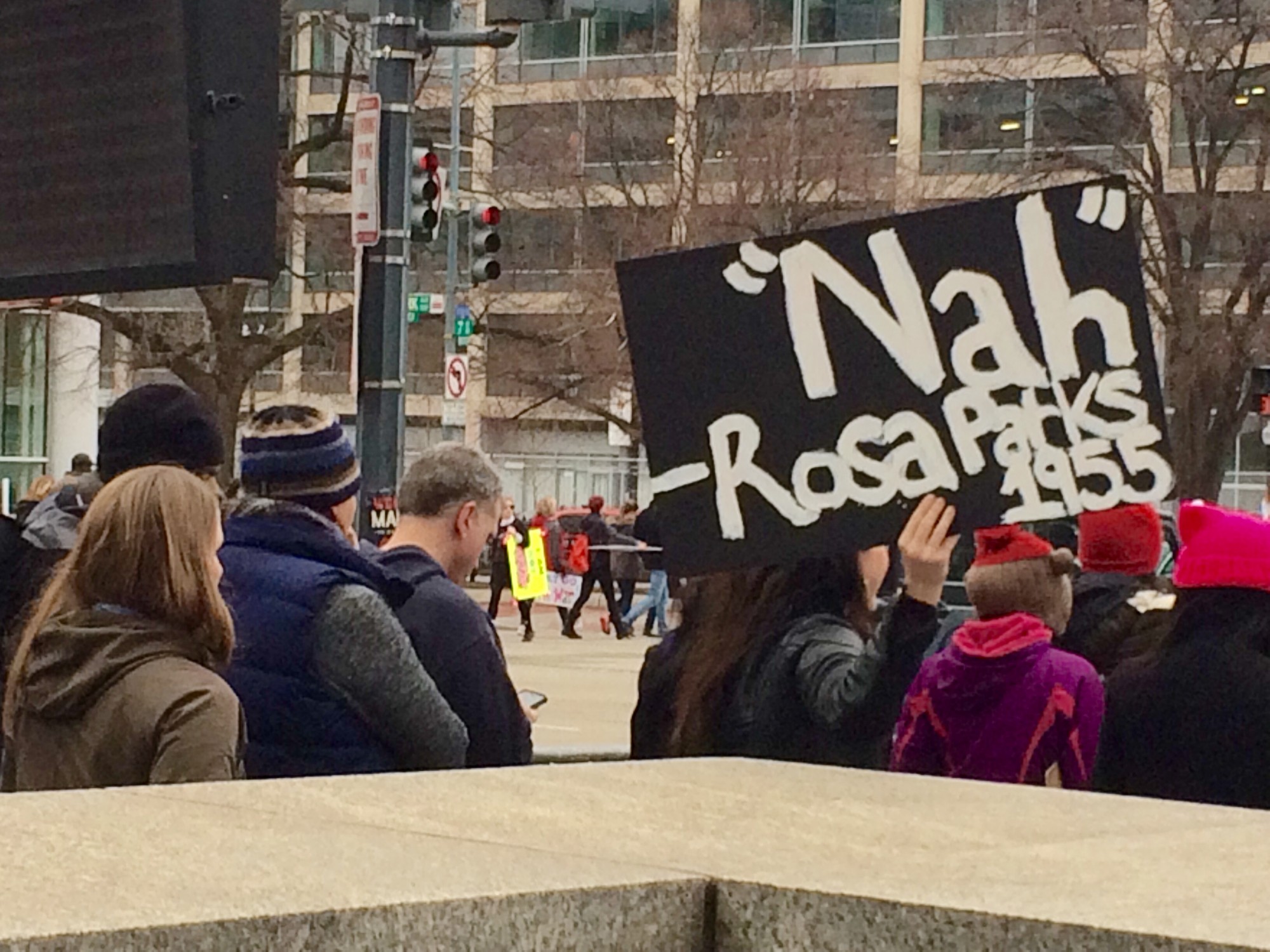It might be comforting to American women that the Women’s March on Washington on Jan. 21 had more attendees than the inauguration itself. It might seem like a sign that women are pulling together to oppose an administration that would prefer to have us come out of the busses into Washington crotch-first. It might seem like there could be no downside to such an outright expression of feminine liberation.
But this march should not make us feel satisfied.
The Women’s March came from a place of good intentions, but it represents the amount of work women still have to do to put up a unified front. The march itself has been a controversial topic since its conception. One of the issues that circulated the event was its lack of emphasis on inclusivity. Protesting for women without protesting for black or other minority women isn’t going to cut it anymore. Talk of systemic racism and institutionalized violence have permeated the airwaves for years leading up to the election. If white women stand up and march only once a candidate makes disparaging comments that affect ALL women, they’re leaving their minority sisters in the dust. This has been dubbed “lazy activism” and it aligns with the Western fallacy that it is only appropriate to act on a cause that affects one directly. This is not a path to progress.
Later, the Women’s March administration did work to be more inclusive, recruiting more non-white activists in the roster of speakers and working to assure the public that it is an intersectional march. But there still seems to be a disparity of views on the protest.
Female Trump voters have come forward, voicing their discomfort with the strong link between abortion and women’s rights as indicated by the event’s partnership with Planned Parenthood. These women argued that one can be a feminist without supporting access to abortion outside the cases of rape or terminal pregnancy.
However, these women are wrong. Feminism does not simply represent a desire for equal pay among genders. It is not even just the idea that “women are as good as men!” Simplifying it to these terms would be naive. It’s standing up for the end to victim-blaming, toxic masculinity and violence against unarmed black women (and men). It is also supporting the right to independent reproductive choices and believing in the overarching concept of “good for her, not for me.”
Feminism is helping other women gain the right to choose what happens to their bodies even if one would not make that same choice for oneself. Lobbying to prevent their ability to do so places an individual’s own preferences or religion over the rights of other women. That is simply not feminism.
The Women’s March on Washington is a step in the right direction. A large number of people across many demographics engaged in one of the biggest protests we’ve seen in years, an event thick with the fervor and determination of Martin Luther King Jr.’s March on Washington for Jobs and Freedom. But women should not dismiss feminist activism if abortion makes them personally uncomfortable, nor should they be satisfied with a stand that defends only privileged, majority feminism. This march has proven to be an opportunity to begin unification against the possibility of a misogynistic administration, as long as we lay down the swords we hold to each other.
Erin Hill is a freshman psychology major. She can be reached at erin.mckendry.hill@gmail.com.



